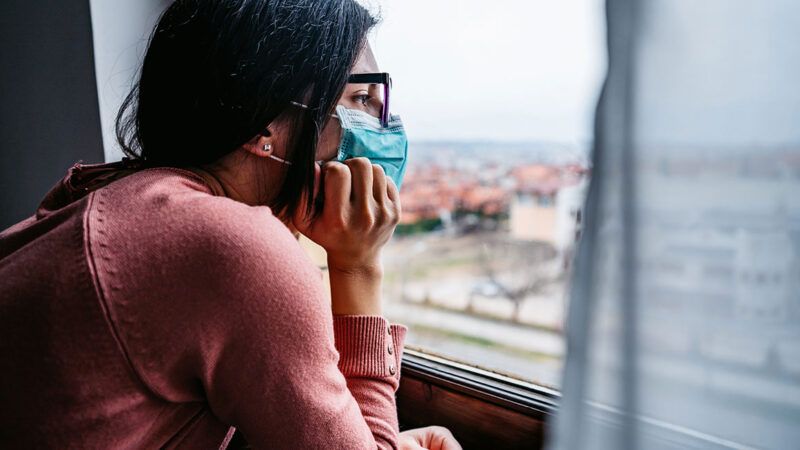Some People Love a State of Crisis
Why do so many people seem eager to fret and impose emergency measures even as COVID-19 becomes endemic and restrictions take a growing toll?

Can't we get back to some version of normal? That's a fair question now that every American who wants a COVID-19 vaccine has had the opportunity to get one. But we still get breathless coverage of every variant and new rounds of travel restrictions, mask mandates, and vaccine document checks as if it were still the early days of the pandemic.
Why do so many people seem eager to fret and impose emergency measures even as COVID-19 becomes endemic and restrictions take a growing toll? It's as if they actually enjoy living in a permanent state of crisis—and maybe they do.
"Crisis-prone individuals don't just like to live in a state of high alert—they seem to relish being called upon to fix all those problems that are causing the crisis," Susan Krauss Whitbourne, professor emerita of psychological and brain sciences at the University of Massachusetts Amherst, wrote in a 2014 Psychology Today article. These people, she explained, "seek—if not revel in—drama, become worked up over small problems, and tend to see themselves as the center of their all-too-frenetic universes."
Whitbourne wrote years before vaccine passports were a twinkle in a bureaucrat's eye, referring to people hooked on disruptive adrenaline rushes at work or home. But a substantial share of our population seems to get much the same kick from a public health crisis.
Early in the pandemic, Elizabeth Cohen, a psychologist who specializes in anxiety, estimated that 20 percent of her clients had seen an improvement in their symptoms with the arrival of the virus and related restrictions. The reason, she told The Daily Beast, was that their fear of the unknown had been replaced by an actual danger with which they could grapple.
"A lot of people are saying, 'The terrible thing happened,'" she said. "So in a lot of ways you're not in the anticipating state."
Whether because a previously amorphous catastrophe has taken specific shape or for other reasons, part of the population actually takes pleasure from the destruction of normal life by public health measures. "On balance a third of people in the UK have been enjoying the lockdown," University College of London researchers reported in June 2020. About a quarter "felt they would miss lockdown more than not miss it."
On this side of the Atlantic, while Americans overall reported being less happy as COVID-19 spread, 27 percent of us said we felt "on top of the world," according to researchers with NORC at the University of Chicago. Who tends to embrace such chaos?
"Of the third of people who report enjoying lockdown, a large number have higher household incomes and live with others or children, suggesting these people may have been less affected by the economic and social restrictions," the University College of London researchers noted. Higher-income people are also more likely to be able to work from home. That meant 60 million fewer commuting hours per day just in the United States, according to a 2020 VoxEU paper. Remote workers, who split the saved hours between their job duties, leisure, and other activities, ended up with an average work week of 32 hours—4.4 fewer than they put in pre-pandemic. Less time in transit and more for leisure and family might convince people to embrace a crisis even if they're not adrenaline junkies.
Let's not forget the public health officials who found themselves thrust into the spotlight and the politicians who assumed unprecedented powers. Newly minted New York Gov. Kathy Hochul (D) declared a state of emergency in November while scientists were still assessing what, if any, special dangers the omicron variant posed. Stepping back into obscurity and normal power parameters is difficult when you've been juiced by a crisis.
Adrenaline junkies, those who can work in pajamas, and empowered politicos don't entirely explain the lingering crisis. Mask mandates, travel restrictions, and vaccination requirements maintained solid majority support among Americans in a Morning Consult survey conducted after omicron appeared. Those who enjoy disruption may be persuading or shaming others to embrace chaos.
"For crisis-prone co-workers, bosses, or employees, the key is to start by managing your own reactions," Whitbourne wrote in 2014. "It's all too easy to take on the 'sky is falling' mentality of such individuals." Those of us who are ready for a return to some sort of normality may have to learn to calm our crisis-prone peers, or else ignore them.


Show Comments (57)